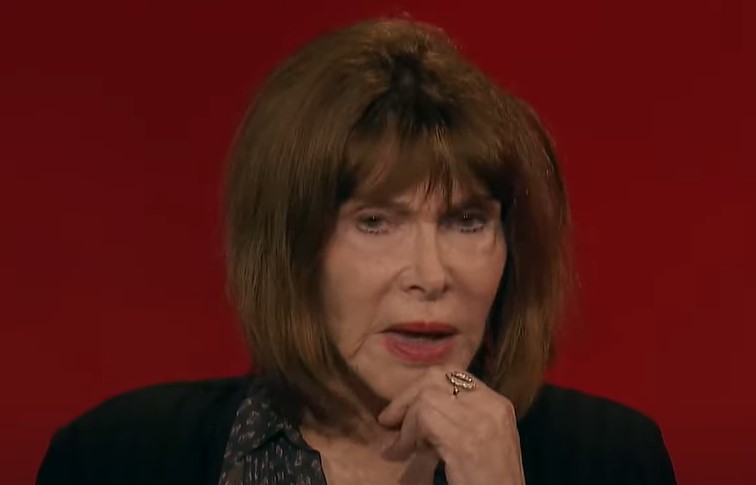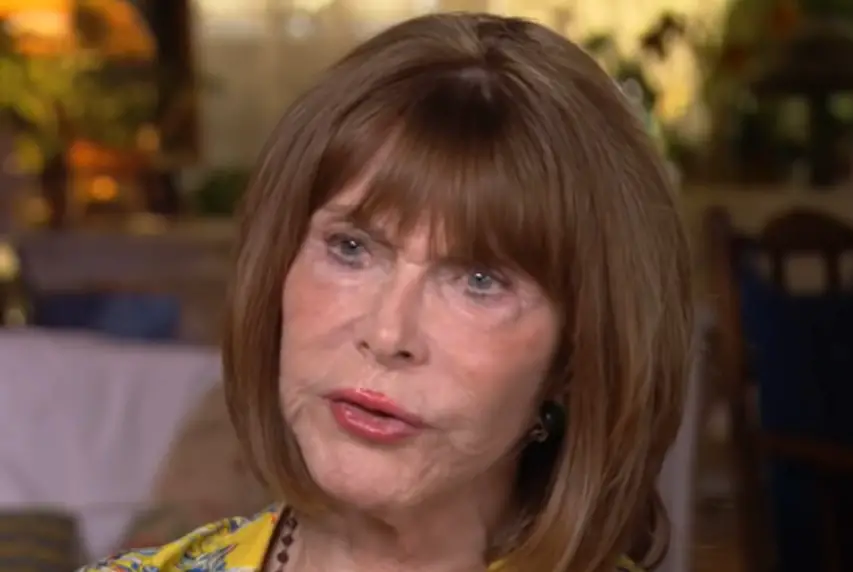Lee Grant was a successful actress in the early 1950s, but her career came to a sudden halt when she was blacklisted by Hollywood. The blacklist was a period of time in the United States when people who were suspected of being communists or communist sympathizers were denied jobs in the entertainment industry.
There are a few reasons why Lee Grant was blacklisted. First, her husband, Arnold Manoff, was a screenwriter who was suspected of being a communist. Second, Grant herself was known to be a political activist. She had spoken out against McCarthyism, and she had even appeared before the House Un-American Activities Committee (HUAC).
Reasons Why Was Lee Grant Blacklisted
Lee Grant was blacklisted in Hollywood in the early 1950s for a number of reasons.
1. Association with her husband: Lee Grant’s husband at the time, Arnold Manoff, was a screenwriter with suspected communist ties. He was named as a communist by a blacklistee during a House Un-American Activities Committee (HUAC) hearing.
2. Refusal to cooperate with HUAC: When called to testify before HUAC, Grant refused to answer questions about her or her husband’s political affiliations, citing her Fifth Amendment right against self-incrimination. This act of defiance was seen as confirmation of her own communist leanings by HUAC and the Hollywood establishment.
3. Political activism: Although not a member of the Communist Party herself, Grant was known for her progressive views and support for leftist causes. This association with communism further fueled suspicion.
4. Timing and career stage: Grant’s blacklisting happened in 1952, right at the peak of the McCarthy era and when her career was just beginning. This made her particularly vulnerable to the blacklist’s chilling effect.
5. Gender and Hollywood sexism: As a woman in a male-dominated industry, Grant faced additional challenges during the blacklist era. Even after being cleared, she struggled to regain her career momentum due to ageism and sexism in Hollywood.
The blacklist had a devastating impact on Lee Grant’s career. She was unable to find work in Hollywood for 12 years. During that time, she worked as a waitress and a cleaning woman to support her family.
In 1967, the blacklist finally ended. Grant was able to resume her acting career, and she went on to win an Academy Award for her performance in the film “Shampoo.”
Lee Grant’s blacklisting is a reminder of the power of McCarthyism and the blacklist. It is also a reminder of the importance of free speech and the right to dissent.
Here are some additional details about Lee Grant’s blacklisting:
- Grant was called before HUAC in 1952. She was asked to name names of people she knew who were communists or communist sympathizers. She refused to answer these questions, and she was blacklisted as a result.
- The blacklist was a period of time in the United States when people who were suspected of being communists or communist sympathizers were denied jobs in the entertainment industry.
- The blacklist lasted for several years, and it had a devastating impact on the careers of many people.
- Grant was one of many people who were blacklisted from Hollywood during this time. Others included actors, directors, writers, and producers.
- The blacklist ended in the late 1950s. However, the damage had already been done, and many people were never able to resume their careers.
Lee Grant’s blacklisting is a reminder of the power of McCarthyism and the blacklist. It is also a reminder of the importance of free speech and the right to dissent.
What Did Lee Grant Do?

Lee Grant was an American actress and director. She began her career in the 1950s with a series of supporting roles in films such as “The Little Foxes” and “In the Heat of the Night”. In the 1960s, she won an Academy Award for Best Supporting Actress for her role in “Shampoo”, and went on to receive nominations for her work in “The Sterile Cuckoo” (1969), “They Shoot Horses, Don’t They?” (1969), and “Valentino” (1977).
In addition to her acting career, Grant also directed several documentaries including “Downhill Racer” (1969) and “You’re Gonna Miss Me” (1989).
Lee Grant’s Legacy
Lee Grant was a talented actress who was blacklisted for her political beliefs. She refused to cooperate with the blacklist, and she paid a heavy price for her courage.
Grant’s blacklisting is a reminder of the power of McCarthyism and the importance of free speech. She is a role model for anyone who has ever been silenced for speaking out against injustice.
Grant’s legacy is one of courage and determination. She refused to be silenced by the blacklist, and she went on to have a successful career in Hollywood. She is an inspiration to anyone who has ever been persecuted for their beliefs.
Conclusion
Lee Grant was an actress who was blacklisted during the McCarthy era. She was accused of being a communist and her career suffered as a result.
You May Also Like:


